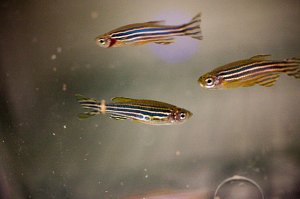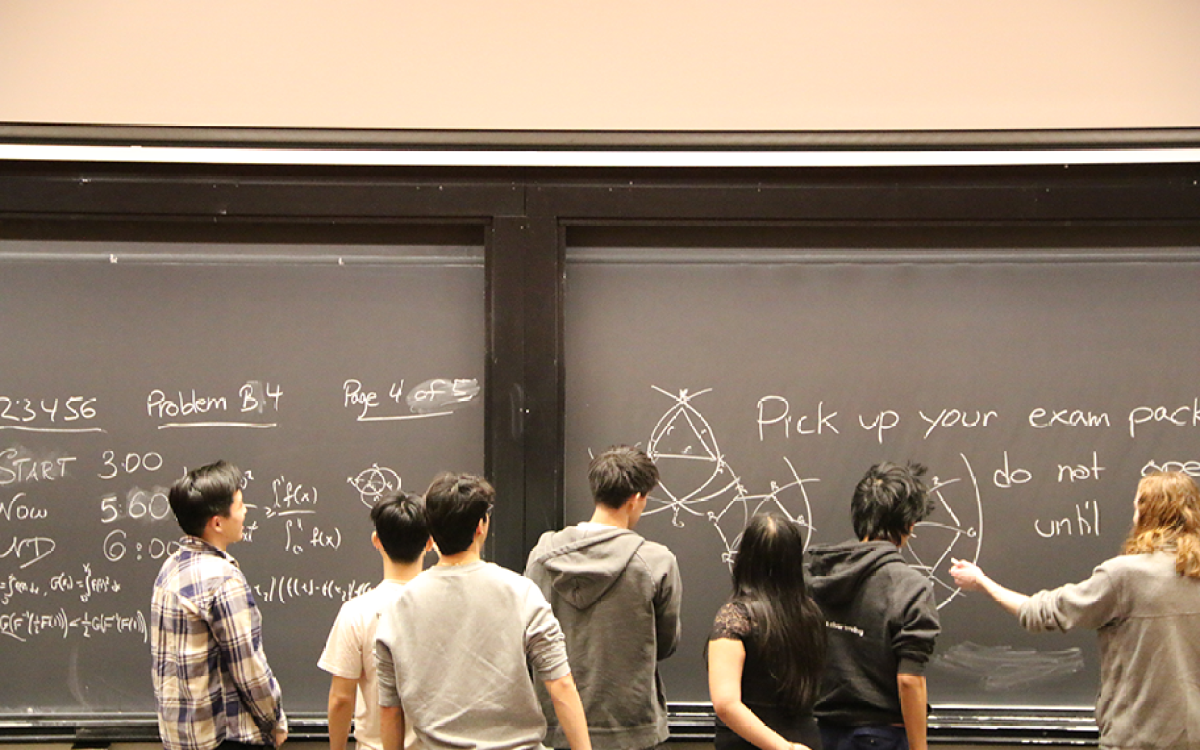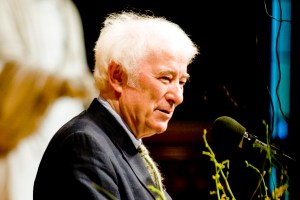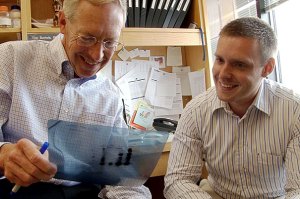Tag: Nature
-
Health
Rapid acts of kindness
In a series of experiments, Harvard researchers found that people who make quick decisions act less selfishly than those who deliberate.

-
Science & Tech
Planets form in cosmic maelstrom
At first glance, the center of the Milky Way seems like a very inhospitable place to try to form a planet. New research by astronomers at the Harvard-Smithsonian Center for Astrophysics shows that planets still can form in this cosmic maelstrom.
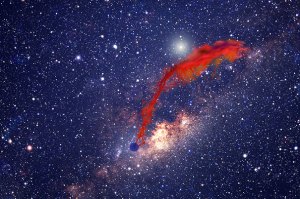
-
Health
Mapping a genetic world beyond genes
Most of the DNA alterations that are tied to disease do not alter protein-coding genes, but rather the “switches” that control them. Characterizing these switches is one of many goals of the Encyclopedia of DNA Elements (ENCODE) project.

-
Health
Giving slime the slip
A team of Harvard scientists has developed a slick way to prevent the troublesome biofilms from ever forming on a surface.

-
Health
When skin cancer cells resist drug treatment
Harvard researchers have found that although tailored drugs can eradicate melanoma cells in the lab, they often produce only partial, temporary responses in patients. Researchers have now learned that normal cells that reside within the tumor, part of the tumor microenvironment, may supply factors that help cancer cells grow and survive despite the presence of…

-
Health
Heart attack worsens atherosclerosis
Researchers at Harvard Medical School and Harvard-affiliated Massachusetts General Hospital have found that the body’s immune response to heart attacks actually worsens atherosclerosis, increasing future heart attack risk, according to a study published in the journal Nature.
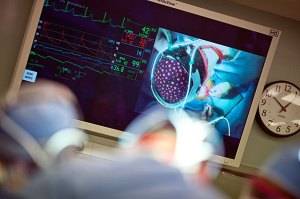
-
Science & Tech
Planet probe
In a paper published in the June 7 issue of Nature, Associate Professor Sujoy Mukhopadhyay presents evidence that the Earth’s deep mantle incorporated gas found in the solar nebula in the first few millions of years of the solar system’s formation.

-
Health
Mapping microbes in people
New studies involving Harvard School of Public Health researchers have helped to identify and analyze the vast human “microbiome,” the more than 5 million microbial genes in the body.

-
Science & Tech
Illuminating carbon’s climate effects
Harvard researchers compiled ice and sedimentary core samples collected from dozens of locations around the world, and found evidence that while changes in Earth’s orbit may have touched off a warming trend, increases in CO2 played a far more important role in pushing the planet out of the ice age.

-
Health
Writing the book of cancer knowledge
The Cancer Cell Line Encyclopedia is an academic-industry collaboration resource that marries deeply detailed cancer genome data with predictors of drug response, information that could lead to refinements in cancer clinical trials and future treatments.
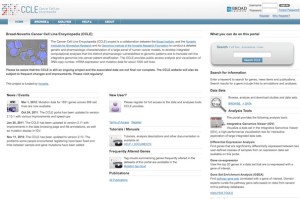
-
Health
Increasing risk for melanoma
A major international study has identified a novel gene mutation that appears to increase the risk of both inherited and sporadic cases of malignant melanoma, the most deadly form of skin cancer.
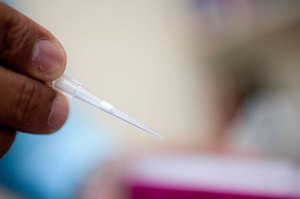
-
Health
Mapping mollusks
Using genetic tools, researchers at Harvard and collaborating institutions have completed the most comprehensive evolutionary tree ever produced for mollusks. Described in the Nov. 2 issue of Nature, the work also serves as a proof-of-concept, demonstrating the power of genomic techniques to answer difficult evolutionary questions.
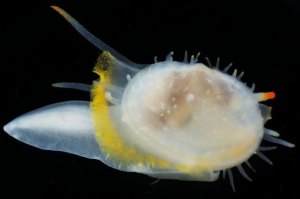
-
Health
Understanding interference
In a discovery that might eventually lead to new biomedical treatments for disease, researchers from Harvard’s Department of Molecular and Cellular Biology have identified two types of RNA that are able to move between cells as part of a process called RNA-interference (RNAi).
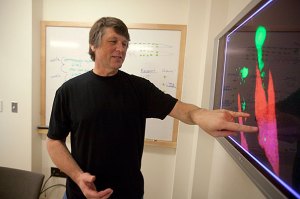
-
Health
Stem cell lessons
Five years after first gaining institutional permission to attempt to produce stem cell lines via somatic cell nuclear transfer (SCNT), two Harvard researchers and a former Harvard postdoctoral fellow have closed the loop with a flurry of new studies and a commentary in several leading journals.
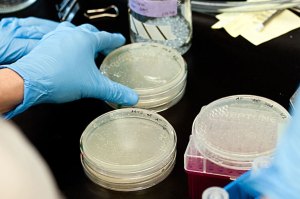
-
Health
Animal scents
A Harvard study of how mice respond to scent cues from potential mates, competitors, and nearby predators has laid a foundation for further investigations that may eventually lead to a greater understanding of social recognition in the animal brain, with implications for a host of human disorders ranging from autism to post-traumatic stress disorder.
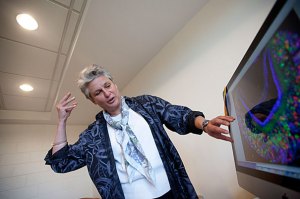
-
Science & Tech
Plant offers slick strategy
Adopting the pitcher plant’s slick strategy, a group of applied scientists at Harvard have created a material that repels just about any type of liquid, including blood and oil, and does so even under harsh conditions like high pressure and freezing temperatures.
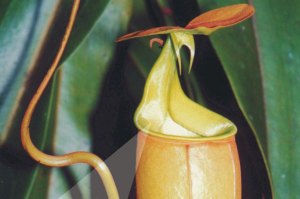
-
Health
Advances in type 2 diabetes drugs
Researchers from Harvard-affiliated Dana-Farber Cancer Institute and the Scripps Research Institute in Jupiter, Fla., report they have created prototype drugs having powerful anti-diabetic effects, yet apparently free — at least in mice — of dangerous side effects plaguing some current diabetes medications.

-
Health
What’s behind the predictably loopy gut
Between conception and birth, the human gut grows more than two meters long, looping and coiling within the tiny abdomen. Within a given species, the developing vertebrate gut always loops into the same formation — however, until now, it has not been clear why.
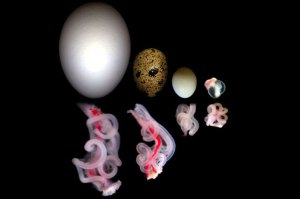
-
Arts & Culture
Field Notes on Science & Nature
Michael Canfield, a lecturer on organismic and evolutionary biology, visits an eclectic range of scientific disciplines, offering examples that professional naturalists can emulate to fine-tune their own field methods, along with practical advice that amateur naturalists and students can use to document their adventures.
-
Science & Tech
The ‘quantum magnet’
Harvard physicists have expanded the possibilities for quantum engineering of novel materials such as high-temperature superconductors by coaxing ultracold atoms trapped in an optical lattice — a light crystal — to self-organize into a magnet, according to an article in the journal Nature.
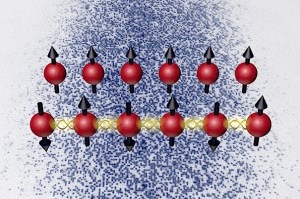
-
Health
Speeding up biomolecular evolution
Scientists at Harvard University have harnessed the prowess of fast-replicating bacterial viruses, also known as phages, to accelerate the evolution of biomolecules in the laboratory.

-
Health
Web-crawling the brain
Researchers in the Department of Neurobiology at Harvard Medical School have developed a technique for unraveling these masses. Through a combination of microscopy platforms, researchers can crawl through the individual connections composing a neural network, much as Google crawls web links.
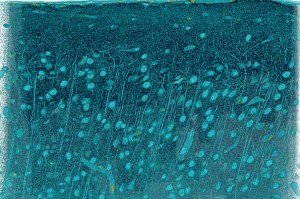
-
Arts & Culture
Cities on a hill
Edward Glaeser, the Fred and Eleanor Glimp Professor of Economics, who was raised in New York City, is an advocate of the metropolis, and upends the myths that cities are unhealthy, poor, and environmentally unfriendly in his book “Triumph of the City.”

-
Health
Following the genomic road map
Harvard President Drew Faust hosted a panel discussion on the legacy of the Human Genome Project Feb. 22 at Sanders Theatre.

-
Science & Tech
The map of us
To mark the 10th anniversary of the publication of the Human Genome Map, Harvard President Drew Faust will host a panel discussion on the project next week (Feb. 22) in Sanders Theatre.

-
Health
Adult kidney stem cells found in fish
It has long been a given that adult humans — and mammals in general — lack the capacity to grow new nephrons, the kidney’s delicate blood filtering tubules, which has meant that dialysis, and ultimately kidney transplantation, is the only option for the more than 450,000 Americans who have kidney failure.
